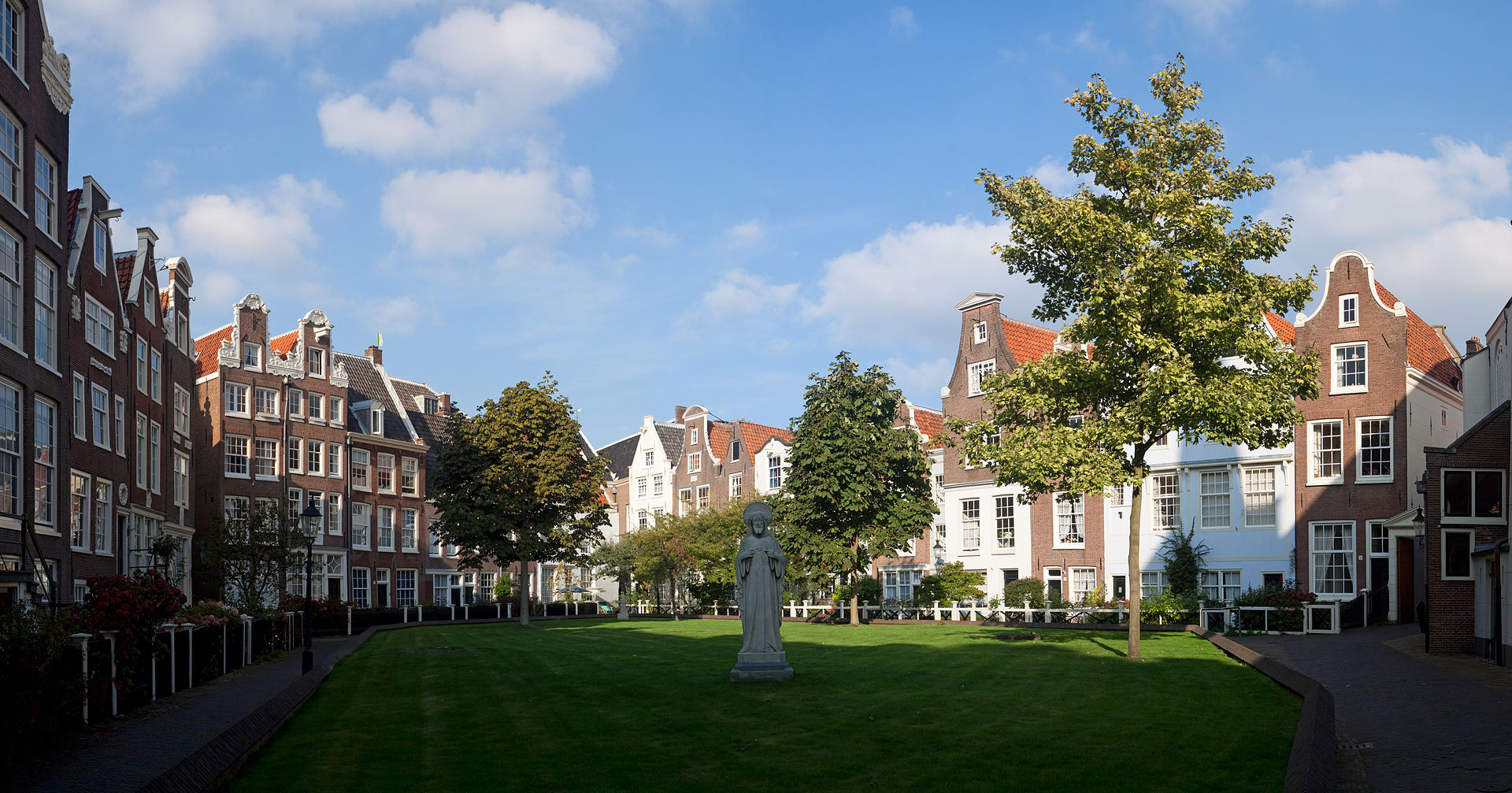Summary | Excerpt | Reading Guide | Reviews | Beyond the Book | Read-Alikes | Genres & Themes | Author Bio

This article relates to Midwinter Break
In Bernard MacLaverty's novel, Midwinter Break, Stella is intrigued by the Beguines, a lay Catholic sisterhood, and while she and her husband are on vacation in Amsterdam she meets with a spiritual director at the Begijnhof to investigate how she might become more involved.

Amsterdam's Begijnhof was founded in 1346. A hofje is a Dutch word for a courtyard with almshouses around it; hoven is the plural. The Begijnhof's complex of buildings includes two fifteenth-century churches later handed over to English and Scottish Protestants and a wooden house that is the oldest in Amsterdam. It is the city's only courtyard remaining from the Middle Ages; because it is still at the medieval street level, it sits about three feet lower than the rest of the city center. The last Beguine here, Sister Antonia, died in 1971, but the Begijnhof is still home to 105 elderly retired women. As Stella learns, there is an application process and a long waiting list to live there.
Starting in the twelfth century, beguinages, a complex of housing built to house beguines, were set aside as sanctuaries where unmarried women could live together and work to help others, particularly the poor and the sick. They did not take official religious vows, meaning they were free to leave the convent at any time, but they did promise chastity and agree to attend Mass and say prayers daily. By pooling their money, the women were able to be self-sufficient.
The religious reformer Lambert le Bègue (d. 1177), a priest from Liège, is thought by a few to be responsible for the initial drive towards creating begijnhoven in most cities and towns of the Low Countries, including Bruges and Ghent as well as Amsterdam. Each beguinage was independent and set its own rules. The male near-counterpart to the Beguines was called the Beghards. Communities varied in size, with some, as in Ghent, growing to a population of thousands. Douceline of Digne (c. 1215–74) introduced the Beguine movement to France, starting in Marseille.
The Beguines, as a lay organization, offered a middle way between monasticism and secular living, a compromise that sometimes attracted suspicion from both Church and civil authorities. Some Beguines were persecuted for their free-spirited ways, including Marguerite Porete, a French mystic, who was convicted of heresy and burned at the stake in Paris in 1310.
The last traditional Beguine died in 2013. She was 92-year-old Marcella Pattyn: born in the Belgian Congo in 1920, she lived in the Belgian beguinages of Ghent and Kortrijk for decades.
Picture by Massimo Catarinella
Filed under Places, Cultures & Identities
![]() This "beyond the book article" relates to Midwinter Break. It originally ran in September 2017 and has been updated for the
September 2018 paperback edition.
Go to magazine.
This "beyond the book article" relates to Midwinter Break. It originally ran in September 2017 and has been updated for the
September 2018 paperback edition.
Go to magazine.
To limit the press is to insult a nation; to prohibit reading of certain books is to declare the inhabitants to be ...
Click Here to find out who said this, as well as discovering other famous literary quotes!
Your guide toexceptional books
BookBrowse seeks out and recommends the best in contemporary fiction and nonfiction—books that not only engage and entertain but also deepen our understanding of ourselves and the world around us.